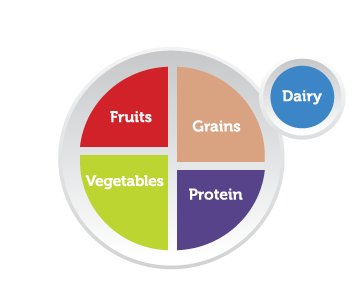Junior Corbin Franklin sighed with relief upon hearing his coach dismiss practice. A long day of school followed by practice in the burning sun made Franklin glad he had planned ahead. Nutrients provided him with the strength he needed to get through the day.
Franklin grew up being fed nutritious meals by his parents, but his newfound maturity and passion for baseball led him to make his own choices.
“With sports I decided to start eating healthy so I would be in shape,” Franklin said. “It definitely made me a lot less tired.”
While academic pressure and college applications peek from around the corner, honor students like Franklin need to retain as much energy as possible. Ms. Gina Chianese, the Lifetime Nutrition and Wellness teacher, encourages everyone to eat “brain foods” such as avocados and salmon.
“Not all calories are equal,” Ms. Chianese said. “When we give our bodies whole, nutritious foods benefiting both the gut and the brain, we’re actually benefiting our minds and bodies while keeping them both healthy.”
Knowing when and what to eat seems like students’ biggest obstacles in achieving a truly healthy diet. Diets are individual decisions based on a person’s lifestyle, meaning it can be difficult to create the perfect eating schedule. However, through trial and error, Franklin has found his perfect equation.
“On the day before a game I’ll eat super carb-heavy [meals],” Franklin said. “Then, on the day of [the game], I’ll try to eat light to make sure I’m always semi-full so I don’t overeat before the game.”
When people don’t take the time to figure out their own body and what works best for it, they end up participating in unhealthy diets. For example, the twinkie diet says to eat 10 twinkies a day, equating to 1,500 calories. While counting calories may be linked to weight loss, the twinkie diet does not count as a healthy alternative to eating.
“These are called ‘fad diets’ and they promise big, fast results but ignore sound nutrition, which means they are not very healthy and you are not incorporating all of the food groups, usually,” Ms. Chianese said.
Instead of fad diets, being conscious of your food intake can make all the difference. Junior Molly Rea decided to be mindful of nutrition after watching elders around her struggle with their health as a result of nutritious negligence.
“I want to live a long and successful life,” Rea said. “Eating healthy and taking care of my body is one of the steps to take.”
To take one of those steps, Rea and Franklin periodically buy their lunches from Legacy’s cafeteria. Although school lunches sometimes have a bad name to them, not only are they affordable, but they’re also nutritious. The meals are required to be 25 percent protein, 25 percent grains, 25 percent vegetables, 15 percent fruit and 10 percent milk, providing students with all the food groups in moderate proportions.
“A good balance is to exercise at least a few times a week for at least 30 minutes and eat a wide variety of foods from every food group,” Chianese said. “Balance is key.”
The benefits to a healthy lifestyle are endless. It provides the body with energy, keeps it functioning correctly and sustains the brain’s memory. A healthy diet isn’t always about losing weight, it’s about keeping the body functioning at its best. If all else fails, just remember:
“Keep proteins lean, carbohydrates complex, and eliminate soda, forever.” Chianese said.




